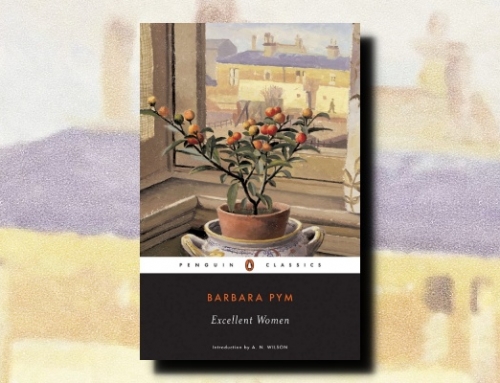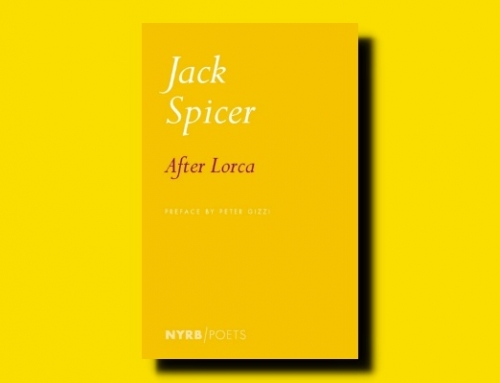
Our Spoons Came from Woolworths
by Barbara Comyns (1950)
NYRB Classics (2015)
224 pp

Barbara Comyns moved to London and married a fellow artist, John Pemberton, in 1931, when she was 24 years old. After four years of poverty and infidelity that produced two children, the marriage ended. In 1950, Comyns published Our Spoons Came from Woolworths, a dark, strange book based on this marriage to some degree (some say substantially; the copyright page says, “The only things that are true in this story are the wedding and Chapters 10, 11 and 12 and the poverty”). Interestingly, according to Emily Gould’s introduction in the new NYRB Classics edition, Comyns’s publishers considered her early work, despite the horrific conditions she detailed, quaint, naïve, “childlike” as her publisher, who not only kept in spelling errors but added more for effect, called it. There’s no doubt that the protagonist in Our Spoons Came from Woolworths lacks polish and sophistication, but Comyns rendering and style — which to me is more like Hemingway than like a child — is complex and darkly psychological.
Our Spoons Came from Woolworths has one of the most engaging openings I’ve read in a while:
I told Helen my story and she went home and cried. In the evening her husband came to see me and brought some strawberries; he mended my bicycle, too, and was kind, but he needn’t have been, because it all happened eight years ago, and I’m not unhappy now. I hardly dare admit it, even touching wood, but I’m so happy that when I wake in the morning I can’t believe it’s true.
The narrator is Sophia Fairclough, and there is good reason for her to doubt whatever current state of happiness she finds herself in. At 21, Sophia married a fellow artist named Charles, and we’re about to hear her Sophia’s devastating story about that failed marriage.
But to say this is a story about a failed marriage feels reductive. There is a lot going on in Our Spoons Came from Woolworths. The tone and style — which some labeled childish, with a patronizing smile — is perfect at conveying a brutalized psyche that remains distanced from the story, as if afraid of engaging with the emotions too much.
Importantly, this entire book is being written, as the narrator says, eight years later, when the narrator has found happiness. But that happiness is also alarming: she knows how quickly it can turn against her. There’s an acceptance of the pain she’s gone through, but it feels false, as if she’s trying to convince herself that she’s okay and the threat of loss really is gone.
Part of Sophia does not want to be telling this story. She regrets sharing it with Helen, yet later we learn that she went “on and on” when telling the story to Helen. She is compelled to recite this horror from the past. This part of her past, this ugly monster, is not gone. Consequently, she now watches for any sign that something is not just as it should be — and she knows her story is not over but will go on until she dies.








It is on my list now! Thanks!
Still haven’t read any Comyns! Must get to something by her.
[…] but perceptive piece in a Nov. 2015 ‘Mookse and Gripes’ review of the NYRB Classics reissue here, when he says: ‘There’s no doubt that the protagonist in Our Spoons Came from Woolworths lacks […]